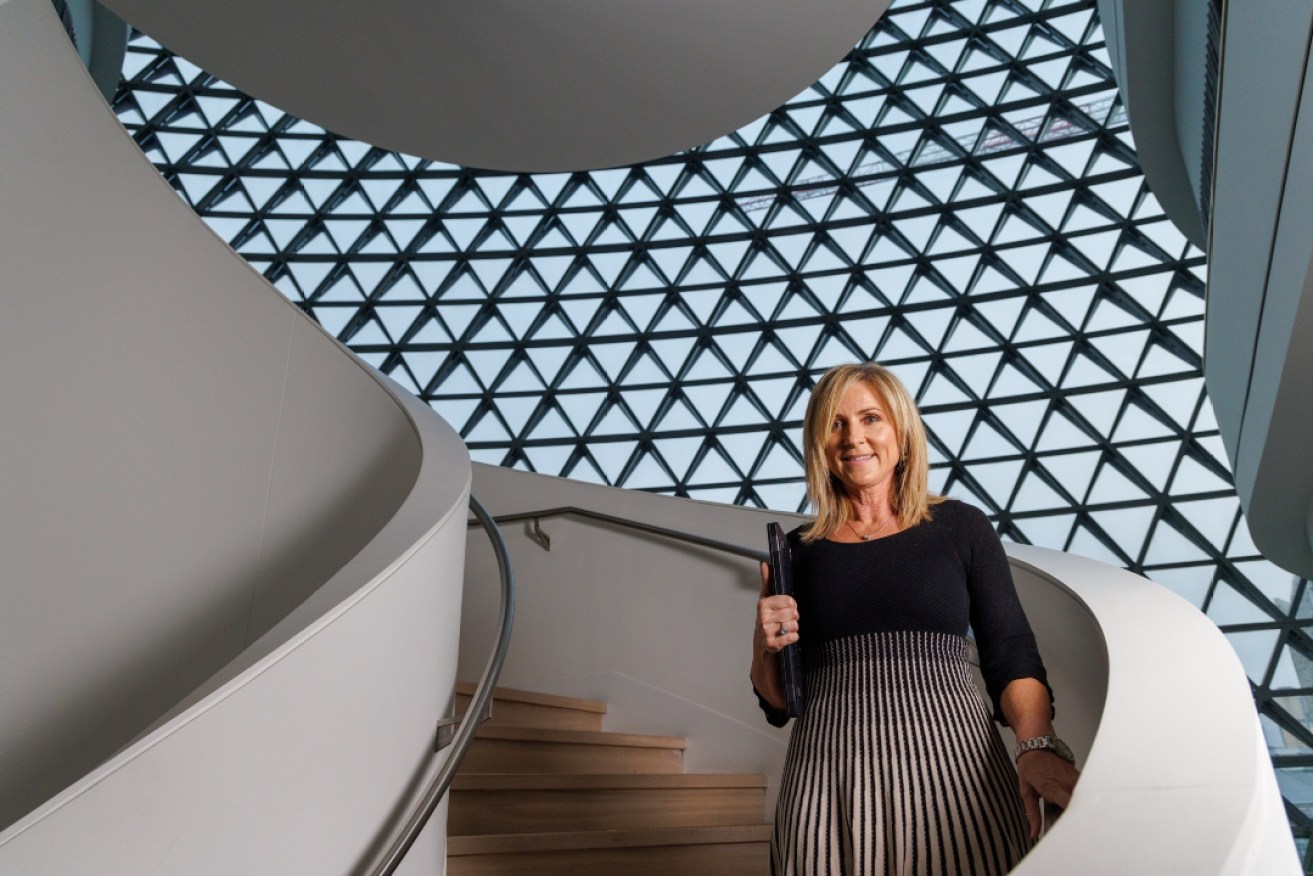
Discovering the best ways to keep mums-to-be healthy
Dr Karen Best leads SAHMRI research that targets optimal nutrition for South Australia’s women and kids.

As a trained midwife, Dr Karen Best spent eleven years of her professional career supporting mothers and babies through pregnancy, delivery and the early days of postnatal life.
Now as a Senior Fellow in SAHMRI’s Women & Kids theme, she designs and manages clinical trial research to understand the best nutrition for pregnant women.
“I’m lucky – my work brings me the best of both worlds,” Karen says.
“I love being part of SAHMRI, and I still have the opportunity to stay connected with patients at the Women’s and Children’s Hospital.”
Food eaten during pregnancy keeps the mother healthy and supports the growth and development of the baby. However, certain components of food – nutrients- are important for more subtle aspects of health.
Karen’s recent research has focused on a type of fat called omega-3, which is found in oily fish, walnuts and other foods.
“We found a dietary supplement of omega-3 in women who had low levels could reduce their risk of preterm birth,” Karen explains.
Preterm birth can result in developmental problems for babies and is often distressing for families. Required support and healthcare are costly.
“Every year in South Australia, around 2000 babies are born preterm, before 37 weeks of gestation,” Karen says.
“Even just a small improvement in that rate could translate into better outcomes for the children and families involved, and lowered expense for the healthcare system.”
Karen and her team’s research has created a positive change in this area, with pregnant women in South Australia now offered an omega-3 blood test as part of their standard prenatal care. If their levels are low, they can be advised to change their diet or take supplements.
“This is precision healthcare, offering nutritional support where it is needed,” Karen says.
SAHMRI’s Women & Kids theme is also researching optimal levels of iodine in pregnancy. Iodine is a naturally occurring mineral important for developing the brain and nervous system.
“In this study, we’re looking at levels of iodine in pregnant women and how that is linked with developmental measures we assess once the baby reaches age two,” Karen explains.
If you’re pregnant or considering pregnancy and would like to be involved in this research, more information is available at The PoppiE Study.
Karen works on Level 7 as part of the Women & Kids theme at SAHMRI. With colleagues working across four research programs, together they conduct research to give children the best start in life, focusing on pregnancy, birth, disability, allergy and families.
“I love arriving at SAHMRI – going up in the lift gives me a real buzz,” Karen says.
“Also, it’s great to pick the brains of so many other scientists and doctors in the building.”
SAHMRI’s other research themes target important health issues in Lifelong Health, Precision Cancer Medicine and Aboriginal Health Equity (Wardliparingga).
Every day, Karen and her SAHMRI colleagues use the building’s desks, laboratory spaces, research areas, meeting rooms and vital infrastructure to conduct research informed by the latest knowledge and technology. They travel in and out of the building to work with hospitals, pathology services and patients to ensure their research is connected to real clinical care.
“There’s an amazing culture within the SAHMRI building, a real team spirit,” Karen says.
“Everyone has a sense that what we’re doing is important and a willingness to help each other improve the health of the community around us.”
In addition to people, SAHMRI also houses essential resources and infrastructure that service South Australia, including technology and tools to support research and produce diagnostics, registries to track health data and trends, and centres to translate research into policy and effective health responses, including for COVID-19.
SAHMRI is South Australia’s independent, not-for-profit health and medical research institute. Its primary reason for being is to provide service to the community.
SAHMRI researchers work closely with each other and the world’s best medical experts to find better ways to treat, heal and care for people.
While they receive some grants from state, national and international funding bodies, community support is vital to boost the pace of research. Donations can put the latest technology into the hands of the SAHMRI team and give talented younger researchers the seed funding they need to bring their ideas to life.




